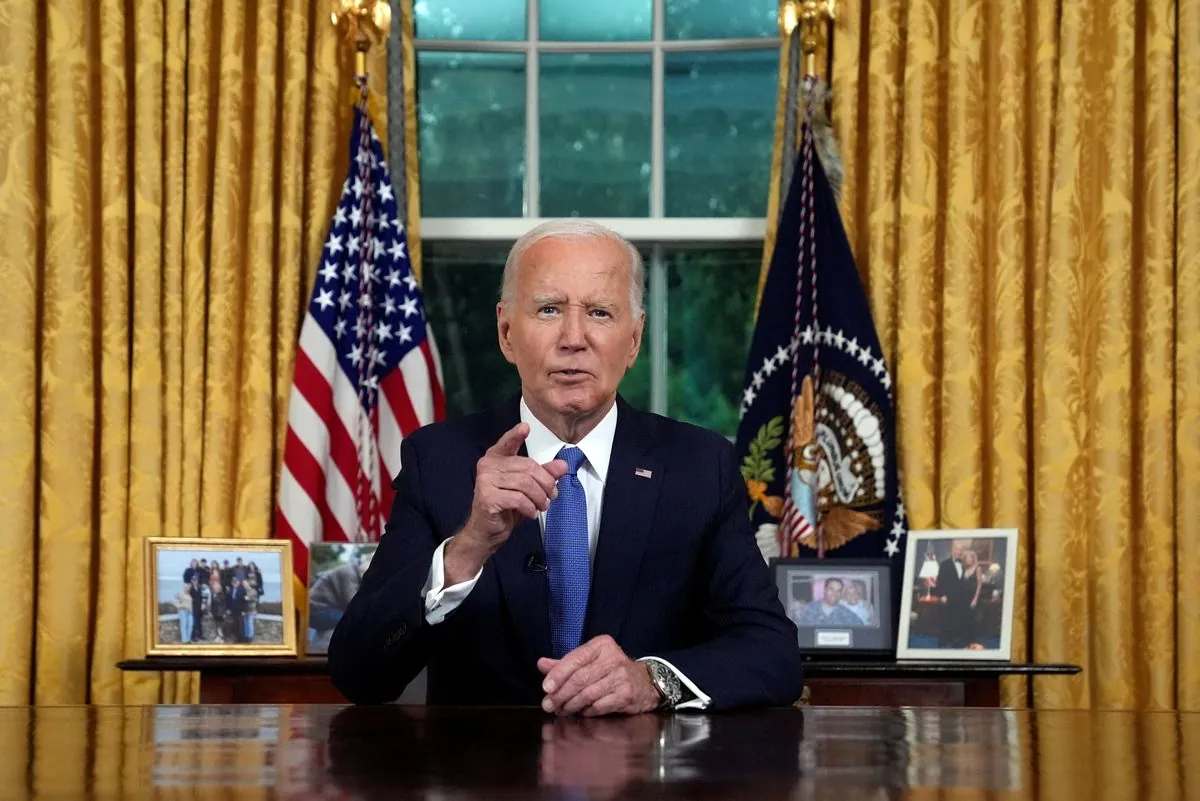Biden's Foreign Policy Legacy: Promises, Challenges, and Unresolved Crises
As Biden prepares to leave office, his foreign policy legacy faces scrutiny. Despite initial promises, ongoing conflicts and perceived missteps have raised questions about America's global influence and the challenges awaiting the next administration.

As Joe Biden prepares to depart the White House in January 2025, his foreign policy legacy remains a subject of intense debate. The president who pledged to restore America's global standing now leaves office with several unresolved international crises.
When Biden assumed the presidency in January 2021, he inherited a complex geopolitical landscape. His administration successfully stabilized relationships with key allies, addressing concerns raised during the previous administration. However, critics argue that Biden's team overestimated America's influence on the world stage.
The US withdrawal from Afghanistan in August 2021 marked a significant turning point in Biden's presidency. While it ended a two-decade-long conflict, the rapid Taliban takeover raised questions about the effectiveness of US foreign policy decisions.

Russia's invasion of Ukraine in February 2022 presented another major challenge. Despite providing substantial military aid to Kyiv, the Biden administration faced criticism for not delivering a clear strategy to end the conflict. The war, now approaching its third year, continues to shape European security dynamics.
The ongoing crisis in the Middle East has further complicated Biden's foreign policy record. The administration's attempts to broker peace between Israel and its neighbors have yielded limited results, with recent escalations in Gaza and Lebanon highlighting the region's volatility.
"We cannot accept the proposed ceasefire plan. Israel must defend itself against threats on all fronts."
Biden's approach to China, identified as America's primary strategic competitor, has also faced scrutiny. Concerns about a potential Chinese invasion of Taiwan by 2027 have intensified, raising questions about the US commitment to its allies in the Indo-Pacific region.
As the next administration prepares to take office, it faces the daunting task of addressing these ongoing conflicts while formulating a pragmatic approach to global challenges. The perceived decline in US influence suggests that future foreign policy strategies may need to be less ambitious and more focused on achievable goals.

The legacy of Biden's foreign policy will likely be a mixed one. While he succeeded in repairing some diplomatic relationships, the persistence of major international crises has led to doubts about the effectiveness of US leadership on the world stage.
As America approaches a new chapter in its foreign policy, the next president will need to navigate a complex global landscape, balancing the nation's interests with the realities of an increasingly multipolar world. The challenges ahead will require innovative approaches and a clear-eyed assessment of America's role in shaping international affairs.


































